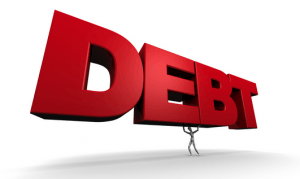Ghana defines parameters for external creditors $20b debt treatment
 Ghana is defining the parameters for the treatment of its $20 billion of debt with its external creditors, Mr Kojo Oppong Nkrumah, Information Minister, says.
Ghana is defining the parameters for the treatment of its $20 billion of debt with its external creditors, Mr Kojo Oppong Nkrumah, Information Minister, says.
“We’re exchanging and validating data and the possible contours of the external debt programme, I and we’re hopeful that it will end well,” he said.
He made this disclosure in an interview with some Ghanaian journalists on Thursday, October 12, 2023, at the ongoing International Monetary Fund (IMF)/World Bank Group (WBG) Annual Meetings in Marrakesh.
“Once we’re done with some of the groups, for example, the Official Creditors Committee, we’ll be able to proceed with an MoU, and the details will proceed,” he said.
At the ongoing IMF, WBG Annual Meetings, Ghanaian authorities are seeking to cement agreement with external creditors on debt treatment and sign a MoU to that effect in November.
Last Friday, Ghana reached a Staff-Level Agreement with the IMF on economic policies and reforms after the first review of the $3 billion ECF-supported programme.
That was to pave way for the release of a second tranche of about $600 million in financing, once the review received approval from the IMF Management and formally completed by the IMF Executive Board.
Ghana temporarily suspended some of its external debt, including Eurobonds, commercial and bilateral loans in December 2022, and has since been awaiting conclusion on debt treatment with its external creditors to resume payment.
On this issue, Mr Nkrumah said: “The resumption of external debt servicing is consequent on the conclusion of the external debt programme, and we’re hopeful that we’ll make progress and based on that, we’ll get back on track.”
The suspension mirrored the country’s unsuitable debt and consequent economic hardship, making the government go for a $3 billion-three-year Extended Credit Facility (ECF) programme with IMF, which was approved in May 2023.
Meanwhile, the country, since the announcement of the programme, and the receipt of the first tranche of some $600 million, has seen some economic rebound under the implementation of the IMF ECF-supported Post-COVID-19 Programme of Economic Growth (PC-PEG).
The country’s Gross Domestic Product (GDP) growth has averaged 3.2 per cent for the last two quarters of 2023, a 0.2 percentage higher than the same period in 2022.
Headline inflation had dropped to 38.1 per cent as of September from 40.1 per cent in August.
The cedi depreciated on year-to-date cumulatively by 23.5 per cent compared to the same period in 2022.
“Notwithstanding uncertainties around global economic recovery, we are confident that we are on the right path, therefore, optimistic about the future,” Mr Ken Ofori-Atta, Finance Minister said last Friday.
These developments have prompted the IMF to review Ghana’s economic growth to more than 1.5 per cent by close of 2023 from the recent 1.2 per cent in the Fund’s October World Economic Outlook.
“The economy entered 2023 with a significant growth momentum and the economy has been more resilient than expected,” an IMF Spokesperson said in a mail correspondence with the Ghana News Agency on Wednesday.
Source: GNA
